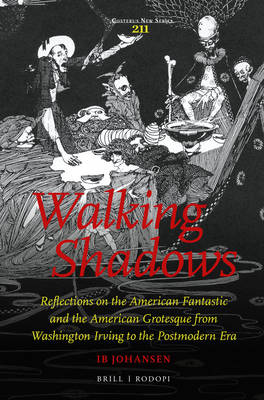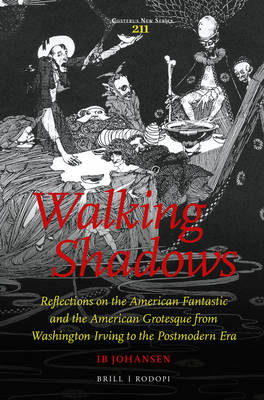
- Afhalen na 1 uur in een winkel met voorraad
- Gratis thuislevering in België vanaf € 30
- Ruim aanbod met 7 miljoen producten
- Afhalen na 1 uur in een winkel met voorraad
- Gratis thuislevering in België vanaf € 30
- Ruim aanbod met 7 miljoen producten
Zoeken
Walking Shadows
Reflections on the American Fantastic and the American Grotesque from Washington Irving to the Postmodern Era
Ib Johansen
€ 253,45
+ 506 punten
Omschrijving
Walking Shadows focuses on the American fantastic and the American grotesque, attempting in this manner for the first time to establish an overview of and a theoretical approach to two literary modes that have often been regarded as essential to an understanding of the American cultural canon. The central importance of these two literary forms has been pointed out earlier by important theorists such as Stanley Cavell, David Reynolds, and William Van O'Connor. A number of literary works, from the beginning of the nineteenth to the end of the twentieth centuries, are taken up in order to illustrate the inherent links or family resemblances between the two modes, with special reference to the way in which a Bakhtinian reading may facilitate our appreciation of their status within the canon. These excursions into the House of Fantastic and Grotesque Fiction may be of interest not only to hardcore aficionados, but also to philosophically minded readers in general, in particular perhaps to those who have paid acute attention to debates on late twentieth and early twenty-first century post-structuralism and deconstruction (where the classic positions of Foucault, Derrida, et al. still appear to be relevant).
Specificaties
Betrokkenen
- Auteur(s):
- Uitgeverij:
Inhoud
- Aantal bladzijden:
- 512
- Taal:
- Engels
- Reeks:
- Reeksnummer:
- nr. 211
Eigenschappen
- Productcode (EAN):
- 9789004303706
- Verschijningsdatum:
- 27/08/2015
- Uitvoering:
- Hardcover
- Formaat:
- Genaaid
- Afmetingen:
- 163 mm x 241 mm
- Gewicht:
- 929 g

Alleen bij Standaard Boekhandel
+ 506 punten op je klantenkaart van Standaard Boekhandel
Beoordelingen
We publiceren alleen reviews die voldoen aan de voorwaarden voor reviews. Bekijk onze voorwaarden voor reviews.











